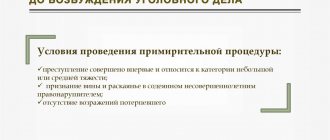- What cases are tried by jury?
- Grounds for consideration of a criminal case by a jury
- Number of jurors
- Selection of juror candidates in Russia
- Who cannot be a juror in Russia
- Who may be excluded from the list of juror candidates?
- Material support for jurors
- Powers of jurors
- Other features of jury trials in Russia
Jury trials first appeared in Russia in 1864. After being abolished in 1917, jury trials as a form of administration of justice were reintroduced in Russia in 1993, initially as an experiment in five regions of the country, then in 2004, jury trials began to operate in all regions except Chechnya, and only from 1 In January 2010, this institute finally began to operate throughout the Russian Federation.
So, according to Part 2 of Article 47 of the Constitution of the Russian Federation, everyone accused of committing a crime has the right to petition for a trial of his case with the participation of a jury in cases where this is permitted by law.
The consideration of criminal cases with the participation of jurors is regulated by the Federal Law “On jurors of federal courts of general jurisdiction in the Russian Federation” No. 113-FZ of August 20, 2004, and the procedural procedure for the participation of jurors in the consideration of criminal cases by courts is regulated by Chapter 42 of the Criminal Procedure Code RF.
Assistance from a lawyer on legal issues. Tel.+7 Telephone consultation
Legal advice for litigants
Citizens who find themselves in a “bottomless legal pit” for a long period of time try to “climb out” of it on their own, looking for answers using the examples of others, and, having not received the desired result, they remember the lawyer.
Legal practitioner:
- Knows the law enforcement and judicial system from the middle.
- Each client’s story is individual, so we approach the study of the issue with care and thoroughness.
- Complies with professional lawyer ethics and takes a responsible approach to the performance of duties.
Lawyers advise turning to experienced specialists; the lawyer will solve the client’s problem with greater efficiency and will tell him how to behave in the legal process.
The correct behavior of participants in court proceedings accompanies the positive work of the court representatives of Themis, which affects the duration and attitude of judges to the process.
To do this, citizens must fulfill the following conditions:
- prepare and submit procedural documents before the trial;
- be attentive to the speeches of the judge, behave in an appropriate manner, do not interrupt the assessors, do not shout out from the seat;
- treats all participants in the process with respect.
This will help avoid various problems during the trial. If objections arise after a court verdict, the dissatisfied party may appeal the decision.
Rights of the accused
The rights of the accused in the Criminal Procedure Code of the Russian Federation in the latest edition are described; according to the list, the accused has a number of rights with which he is entitled. But in Article 47 of the Code of Criminal Procedure of the Russian Federation, the rights are stated briefly, the most basic, without details or additions.
The following are rights that belong only to the accused:
- object to the charge;
- refuse to give any evidence;
- time to prepare and consult with your lawyer;
- make copies of documents, make photocopies;
- the right to the last word.
This list cannot be used, for example, by the victim, since they are specific and suitable only for the accused.
As for those accused who are kept under guard in order to prevent possible evasion of justice, they also have their own special rights, the list of which is quite large.
These include:
- Meetings with a lawyer, notary (if it is an individual entrepreneur or a legal entity).
- Buy groceries, buy clothes according to the season.
- If possible, work, work hard.
- Conduct money transactions - transfers.
- Daily walks for at least an hour.
- Correspond with someone and have the necessary writing materials with you.
- Sleep 8 hours.
- Have your own bed linen.
- Use scientific and other literature from the library of the place of detention.
- Engage in self-education and have the appropriate literature for this, etc.
This list of rights also has its own specifics - the rights listed here will not apply to other groups.
Possible court composition schemes
Currently, the science of criminal procedure allows us to identify a number of approaches to the formation of the court composition. They are determined by a number of factors, including traditions and peculiarities of the legislation of various states. First of all, it is necessary to distinguish between collegial and individual compositions of the court. At the same time, the composition of the court can be professional or non-professional. In the first case, the legal process is led by a professional lawyer who has the appropriate powers and privileges granted to him by the state. And in the second, judges are elected from among the public, and they do not need to have appropriate education or certain specific knowledge. The result of different ratios of the above criteria are the following possible compositions of courts:
- Criminal cases are handled exclusively by professional judges. They can do this collectively or individually. This is practiced in many countries, including Holland;
- review is carried out by non-professional staff. A clear example of this is the traditional English magistrates;
- the review is carried out by professional judges and jurors. Judges from the people determine whether a crime has taken place and whether the defendant is guilty. In turn, with a guilty verdict, professional judges classify the criminal act and impose punishment;
- the review is carried out by professional and non-professional judges, while all existing issues are resolved collectively by voting. This was practiced in the USSR and Germany. Today, this is practiced in Belarus. It should be noted that the voices of professionals and non-professionals most often have equal strength, but the opposite is also possible;
- review is carried out by autonomous panels of professionals and non-professionals. All decisions in the case are made by secret ballot. An example of such a scheme is the Assize Court in France.
There are other schemes for forming the composition of the court, but today they are either no longer relevant or are not widespread.
Medvedev eliminated troikas of judges in district courts
Russian President Dmitry Medvedev signed amendments to the Code of Criminal Procedure of the Russian Federation, excluding the consideration of criminal cases in district courts by panels of three judges, the Kremlin press service reports.
The Federal Law “On Amendments to the Criminal Procedure Code of the Russian Federation” was adopted by the State Duma on October 19 and approved by the Federation Council on October 26, 2011.
On June 29, the State Duma adopted this law in the second and third readings, but its further fate was not easy. The Federation Council rejected the bill on July 13, and the decision was accompanied by harsh criticism from senators against their legislative colleagues from the lower house. Chairman of the Federation Council Committee on Legal and Judicial Issues Anatoly Lyskov noted that the initial “concept [of the bill] was completely justified, the approach completely coincided with the concept of Law No. 433 adopted on the legislative initiative of the President of the Russian Federation at the end of last year.” However, according to the senator, the law in question, during its adoption in the State Duma, underwent significant changes and came into conflict with Federal Law-433, and both laws should have come into force on January 1, 2013. Therefore, the Committee recommended against approval of this law.
After this, the document went to the conciliation commission, and from it returned to the Federation Council with completely different formulations regarding which courts should collectively consider cases of grave and especially grave crimes. Now, paragraph 3 of Article 30 of the Code of Criminal Procedure of the Russian Federation (Composition of the court) is proposed to be formulated as follows: “a panel of three judges of a federal court of general jurisdiction [considers] criminal cases of crimes...”. Thus, the same wording that is in the current version of paragraph 3 of Article 30 of the Code of Criminal Procedure of the Russian Federation has been returned to the bill. At least on paper, legislators have abandoned the elimination of benches of judges in federal courts at the district level.
This law introduces amendments to the Criminal Procedure Code of the Russian Federation, “excluding provisions on the consideration of criminal cases in a district court by a panel of three judges” (read more here).
“This will make it possible to redistribute the staffing of federal judges and send them to courts where the workload exceeds the average statistical norms,” notes the Presidential GPU.
At the same time, it remains possible for a panel of three judges to consider criminal cases of grave and especially grave crimes within the jurisdiction of higher courts, including crimes of a terrorist and extremist nature.
But this is not the only change in the bill. An innovation is a reduction in the list of cases that can be considered by three judges if there is a petition from the accused . Now these will not be all criminal cases of grave and especially grave crimes. As before, without a petition from the accused, the trio of judges will consider cases under Articles 205, 206 parts two - four, 208 part one, 212 part one, 275, 276, 278, 279 and 281 of the Criminal Code of the Russian Federation.
To the jurisdiction of regional courts (Article 31 of the Code of Criminal Procedure of the Russian Federation), three more crimes were added, provided for in parts 3-4 of Article 132 “Violent acts of a sexual nature”, as well as 205.1 “Promotion of terrorist activities” and 205.2 “Public calls for terrorist activities or public justification for terrorism."
Thus, the initiative of the deputies was agreed upon with Law No. 433 of December 29, 2010, which provides for the creation of appellate instances in the Russian system of courts of general jurisdiction, which will come into force on January 1, 2013. According to this law, changes are being made to Part 3 of Article 31 of the Code of Criminal Procedure of the Russian Federation, in which the jurisdiction of regional courts includes cases under the same articles that are now being introduced by the new law into Part 3 of Article 30 of the Code of Criminal Procedure of the Russian Federation.
(Read more about the passage of the law in both chambers of the Federal Assembly here).
- Judicial reform, Criminal procedure
- Code of Criminal Procedure of the Russian Federation
- Dmitry Medvedev
Article 47 of the Code of Criminal Procedure of the Russian Federation
Art. 47 of the Code of Criminal Procedure of the Russian Federation, like any other article, contains several positions that break the entire article into numbered parts. Each part has specific information.
There are 6 of them in this article:
- The first part talks about what types of documents are issued in order to hold a person accountable for a crime committed. That is, when all the circumstances are found that act as evidence of the guilt of a particular person, a special document is issued that provides confirmation - this person is guilty. So, from this part of the article we can draw a conclusion. In order for a person to be given the legal status of an accused, an indictment or indictment must be issued. This document is signed by either the investigator or the interrogating officer. A person becomes accused even when he does not know about this document.
- Part 2 reveals the essence of three definitions - who is a defendant, convicted and acquitted: “The accused, in whose criminal case a trial is scheduled, is called the defendant. The accused against whom a guilty verdict has been passed is called the convicted person. The accused who is acquitted is acquitted.” The difference between a convicted person and an acquitted person is quite clear, but it is not always possible to draw the line between a defendant and a convicted person - these terms are to some extent similar.
- After these definitions of who is who, Part 3 of Article 47 of the Code states that the accused has the opportunity to defend himself, and time restrictions cannot be introduced: “The accused has the right to defend his rights and legitimate interests and have sufficient time and opportunity to prepare for the defense "
- The third part is the largest in terms of the volume of information presented, compared to other parts of this article. It sets out information that the accused can use - his rights. In total there are 21 points in the 3rd part. A complete list of these rights can be found in the code itself.
- The penultimate part of this article says the following: “The participation in a criminal case of a defense attorney or legal representative of the accused does not serve as a basis for limiting any of the rights of the accused.” In other words, whether the defendant’s defense attorney participates or not, this should not in any way affect the rights of the accused.
- The last, final part of Article 47 is the sixth. She says that when the accused is first summoned for questioning, he must be explained his rights. Namely, to give or not to testify, to object to the accusation, to seek and present evidence and also the right to an interpreter and to a defense.
More precise provisions of this article can be found in the code itself, as well as on the ConsultantPlus website.
Other features of jury trials in Russia
- A criminal case in which several defendants are involved is considered by a court with the participation of a jury in relation to all defendants, if at least one of them submits a petition for consideration of the criminal case by a court of this composition. However, if one or more accused are against consideration of the case by a jury, the investigator, if possible, separates the criminal cases against such accused into separate proceedings. In the absence of such a procedural possibility, the criminal case will be tried with the participation of a jury, regardless of the consent of all the accused.
- If the accused is charged with several elements of a crime, of which only one element is within the jurisdiction of a jury, then when the accused submits a petition for trial by a jury, the entire criminal case will be considered by a jury, despite the fact that not all elements of the crime are within the jurisdiction of a jury.
- The judge's decision to consider a criminal case by jury is final. This means that the defendant’s subsequent refusal to consider the criminal case by a jury will not be accepted.
- If several persons are accused in a case that can be tried by a jury, all of them must be provided with defense lawyers, regardless of what articles of the Criminal Code of the Russian Federation they are charged under.
- During the consideration of the case, jurors are subject to guarantees of independence and immunity of judges established by law.
- A candidate for jury cannot be held liable for failure to appear in court, since such liability is not provided for by law for a candidate. In accordance with Art. 327 of the Code of Criminal Procedure of the Russian Federation, a candidate for juror receives the status of a juror after he is included in the list of jurors during the preparatory part of the court session from among the candidates who arrived in the courtroom, and only from that moment does he bear the statutory responsibility for failure to fulfill the duty of a juror.
- By virtue of Part 3 of Art. 333 of the Code of Criminal Procedure of the Russian Federation for failure to appear in court without a good reason, a juror may be subject to a monetary penalty.
Composition of the court of first instance
In the Russian Federation, there are three options for the composition of the court of first instance:
- sole;
- collegial consisting of three professional judges;
- collegial consisting of 12 jurors and one professional judge.
The composition of the court in criminal proceedings and the rules for determining it need to be considered in more detail:
- Justices of the peace always consider cases individually. This approach to the formation of the court composition in criminal proceedings does not cause criticism. This is often due to the fact that magistrates have jurisdiction over crimes of minor gravity, for which punishment of more than two years in prison is not provided. It must be said that most often magistrates do not pass such sentences. Often the verdict of the magistrate court is a fine or administrative arrest;
- The district court also most often considers the vast majority of criminal cases on its own. It should be understood that such a court cannot pass a sentence in accordance with which the term of serving the sentence exceeds 15 years. It should be noted that in some cases, district courts consider cases within the jurisdiction of the judicial body of a constituent entity of the Russian Federation. This is possible if for some reason the defendant cannot be sentenced to life imprisonment or the death penalty. Women, persons who committed crimes before reaching adulthood and men over 65 years of age are not subject to such punishments. In addition, cases of extradited persons can be heard in district courts. The fact is that, according to international treaties, the principles of humanism apply and extradited persons cannot be subject to such punishment as capital punishment. All of the above categories of defendants have the right to have their case heard by a panel of three professional judges. To do this, you need to submit a corresponding petition;
- a much larger number of possible options for the composition of the court are provided for when considering a case at the level of a constituent entity of the Russian Federation. According to the Code of Criminal Procedure, the composition of the court at the level of a constituent entity of the Russian Federation depends on a number of factors. According to the generally accepted rule, criminal cases in such courts are considered by a single professional judge, but there are a number of exceptions. For example, the accused may file a motion to have his case reviewed by a panel of judges. In addition, a collegial hearing is mandatory in cases of so-called terrorism, organizing mass riots, and crimes against the constitutional order and the state. All of the above cases must be handled by three professionals. The legal composition of the court in other criminal cases within the jurisdiction of the court at the level of a constituent entity of the Russian Federation directly depends on the position of the accused. In such situations, a jury trial may be possible. The exception is trials involving rape cases.
Above we discussed such a type of punishment as the death penalty. It must be said that to this day there are a number of articles in the Criminal Code of the Russian Federation that provide for the death penalty as a punishment. At the same time, there is a moratorium on the execution of such punishments in the Russian Federation. Thus, in some cases, courts can pass such sentences, but they cannot be executed.
Article 30. Composition of the court
Article 30. Composition of the court
[Code of Criminal Procedure] [Part One] [Section II] [Chapter 5]
. Criminal cases are considered by the court collectively or by a single judge. The composition of the court for the consideration of each criminal case is formed taking into account the workload and specialization of judges through the use of an automated information system. If it is impossible to use an automated information system in court, it is allowed to form the composition of the court in a different manner, excluding influence on its formation by persons interested in the outcome of the trial.
. The court of first instance considers criminal cases in the following composition:
- 1) judge of a federal court of general jurisdiction - criminal cases of all crimes, with the exception of criminal cases specified in paragraphs 2-4 of this part;
- 2) a judge of the supreme court of the republic, a regional or regional court, a court of a federal city, a court of an autonomous region, a court of an autonomous district, a district (naval) military court and a panel of eight jurors - at the request of the accused, criminal cases for the crimes specified in paragraph 1 part three of article 31 of this Code, with the exception of criminal cases of crimes provided for in articles 131 part five, 132 part five, 134 part six, 212 part one, 275, 276, 278, 279, 281 of the Criminal Code of the Russian Federation;
- 2.1) a judge of a district court, a garrison military court and a panel of six jurors - at the request of the accused, criminal cases of crimes provided for in Articles 105 part two, 228.1 part five, 229.1 part four, 277, 295, 317 and 357 of the Criminal Code of the Russian Federation, for which, as the most severe form of punishment, life imprisonment or the death penalty cannot be imposed in accordance with the provisions of part four of Article 66 and part four of Article 78 of the Criminal Code of the Russian Federation, criminal cases of crimes provided for in Articles 105 part one and 111 part four Criminal Code of the Russian Federation, with the exception of criminal cases of crimes committed by persons under the age of eighteen;
- 3) a panel of three judges of a federal court of general jurisdiction - criminal cases of crimes provided for in articles 205, 205.1, 205.2, 205.3, 205.4, 205.5, 206, 211 part four, 212 part one, 275, 276, 278, 279, 281 parts the second and third Criminal Code of the Russian Federation, and other criminal cases within the jurisdiction of the 1st Eastern District Military Court, the 2nd Western District Military Court, the Central District Military Court and the Southern District Military Court in accordance with paragraphs 2 - 4 of part six.1 Article 31 of this Code, and in the presence of a petition from the accused, filed before the appointment of a court hearing in accordance with Article 231 of this Code - criminal cases of crimes provided for in Articles 105 part two, 126 part three, 131 parts three - fifth, 132 parts three - fifth, 134 parts fourth - sixth, 208 parts first, 209, 210 parts first, first.1, third and fourth, 210.1, 211 parts first - third, 227, 228.1 parts fifth, 229.1 parts fourth, 277, 281 parts first, 295, 317, 353 - 358, 359 parts one and two, 360 of the Criminal Code of the Russian Federation;
- 4) magistrate - criminal cases within his jurisdiction in accordance with part one of Article 31 of this Code.
. Consideration of criminal cases on appeal is carried out:
- 1) in a district court - by a judge of the district court alone;
- 2) in higher courts - by a court composed of three judges of a federal court of general jurisdiction, with the exception of criminal cases of crimes of minor and medium gravity, as well as criminal cases with appeals, submissions against interim decisions of a district court, garrison military court, which are considered by a judge of the supreme court court of a republic, regional or regional court, court of a federal city, court of an autonomous region, court of an autonomous district, district (naval) military court individually.
. Consideration of criminal cases in the cassation procedure is carried out by the judicial collegium for criminal cases of the cassation court of general jurisdiction, the military court of cassation, the Judicial collegium for criminal cases of the Supreme Court of the Russian Federation and the Judicial collegium for military personnel of the Supreme Court of the Russian Federation, consisting of three judges, and by way of supervision - by a majority of members of the Presidium of the Supreme Court of the Russian Federation.
. When a criminal case is considered by a court consisting of three judges of a federal court of general jurisdiction, one of them presides over the court session.
. Criminal cases within the jurisdiction of a magistrate, committed by persons specified in part five of Article 31 of this Code, are considered by judges of garrison military courts individually in the manner established by Chapter 41 of this Code. In these cases, the verdict and decision can be appealed.
Commentary to Art. 29 of the Criminal Procedure Code of the Russian Federation
Comments on the articles of the Code of Criminal Procedure will help you understand the nuances of criminal procedure law.
1. By establishing the right of the court to find a person guilty of committing a crime and impose punishment on him, the legislator thereby emphasizes that only the court, applying the norms of criminal procedural law, has the right to simultaneously fully apply the norms of the Special Part of the Criminal Code. Investigators, interrogators and prosecutors also apply the norms of the Special Part of the Criminal Code. However, the nature, order, scope, goals and legal consequences of this activity at different stages of the criminal process are different. The application of criminal law during the investigation solves mainly intermediate, although important procedural tasks. The application of the norms of criminal law by the court in a verdict means the resolution of the criminal case on the merits, causes criminal legal consequences in the form of determining the scope of criminal liability, establishes the nature of criminal legal relations and prescribes the ways of their implementation. In addition, the passing of a sentence gives rise to a complex of criminal procedural relations in connection with the right of the parties to appeal it. Finally, the entry into force of a sentence means the existence of a legal fact that gives rise to criminal-executive relations.
2. Along with the traditional “set” of rights and obligations for the court, the legislator has significantly expanded the powers of the court to monitor the implementation of laws and ensure the rights of citizens participating in criminal proceedings at its pre-trial stages. First of all, this is reflected in part 2 of the commented article, which defines the competence of the court: a) in terms of restricting the freedom of a suspect or accused (clauses 1 - 3 of part 2); b) in terms of allowing preliminary investigation bodies to carry out investigative and other procedural actions during the investigation and inquiry related to the restriction of the rights and freedoms of citizens (clauses 4 - 11, part 2). Such provisions not only develop those provisions that existed in the 1990s. incorporated into the previously existing Code of Criminal Procedure of the RSFSR, but also take another step forward in this direction, on the one hand, helping to strengthen the rule of law, and on the other, strengthening the legal protection of citizens.
3. The tendency to strengthen judicial control over the implementation of laws during the inquiry and preliminary investigation and to protect the rights of citizens during the investigation is also present in the provisions of Part 3 of the commented article, which establishes the power of the court in the course of pre-trial proceedings to consider complaints about the actions (inaction) and decisions of the prosecutor, investigator, body of inquiry and interrogating officer. The content of Art. corresponds with this provision. 125 of the Code of Criminal Procedure, according to which decisions of the inquirer, investigator, prosecutor to refuse to initiate a criminal case, to terminate a criminal case, as well as their other actions (inactions) and decisions that can cause damage to constitutional rights can be appealed to the court at the place of the preliminary investigation and the freedoms of participants in criminal proceedings or impede citizens’ access to justice (see commentary to Article 125).
4. Part 4 of the commented article indicates the right of the court to issue a private ruling (resolution) as a means of responding to identified circumstances that contributed to the commission of a crime, violation of the rights and freedoms of citizens, as well as other violations committed during the investigation or by a lower court. The legislator did not try to give a closed list of issues that may become the subject of a private determination (resolution), emphasizing that these procedural acts can be issued in other cases (for example, discovered facts of violation of the law by civil servants, officials of government bodies of various forms of ownership, failure to appear participants in criminal proceedings, as well as violations of order at a court hearing).
5. The commented article defines only the main directions of the court’s activities. At the same time, some directions in this article are not indicated even in a general form. This applies, in particular, to the activities of the court at the stage of execution of the sentence, although the role of the judiciary at this stage is extremely important and responsible (appealing the sentence for execution, conditional and parole release from punishment, changing the regime of detention of a person sentenced to imprisonment, etc.). P.). Chapters are devoted to these issues. 46 and 47 Code of Criminal Procedure.
Commentary on Article 30 of the Code of Criminal Procedure of the Russian Federation
1. This article defines the so-called. jurisdiction of criminal cases by different compositions of the court. One professional judge (single-person) consists of:
- district courts and garrison military courts, acting as courts of first and appellate instances, and also competent to make decisions during pre-trial proceedings in a criminal case (part 5 of article 108, part 3 of article 125, part 2 of article 165 );
- district courts and garrison military courts, as well as supreme courts of republics, regional (regional) courts, courts of federal cities, courts of autonomous regions and autonomous districts, district (naval) military courts - when considering cases of all crimes within their jurisdiction (with the exception of criminal cases specified in paragraphs 2 - 3 of part 2 of this article. See also paragraph 6 of Article 31);
- justices of the peace;
2. The following courts operate in the Russian Federation, consisting of three professional judges:
- courts at the level of constituent entities of the Russian Federation - when considering in the first instance cases of grave and especially grave crimes from among the jurisdiction of these courts;
- courts of appeal (with the exception of the district court), cassation and supervisory instances (the latter can also act in a composition consisting of more than three judges).
Composed of one judge of the supreme court of the republic, a regional (regional) court, a court of a federal city, a court of an autonomous region or an autonomous district, a district (naval) military court and a panel of twelve jurors, at the request of the accused, criminal cases of crimes specified in paragraph 3 hours 2 rooms articles.
3. As indicated by the Constitutional Court of the Russian Federation in Resolution No. 8-P dated April 19, 2010, the exclusion from the jurisdiction of a jury court of criminal cases of terrorist acts and other crimes related to terrorist activities was carried out taking into account the prohibition of imposing an exceptional penalty in the form of the death penalty and is caused by their increased the complexity and specificity of the crimes themselves, which in modern conditions predetermines the authority of professional judges to make a conclusion about the guilt or innocence of the defendants.
At the same time, the determination of the jurisdiction of criminal cases by a jury by type of crime is regulated in such a way that when charges are brought simultaneously for several crimes, some of which are subject to consideration by a court with the participation of a jury, and some are exclusively the subject of consideration by a court composed of professional judges, as a general rule the priority of a trial with a jury is recognized. At the same time, the provisions of paragraphs 2 and 3 of Part 2 of Art. 30 of the Code of Criminal Procedure as amended by Federal Law No. 321-FZ of December 30, 2008, as specifically intended to exclude cases of terrorism and related crimes (precisely taking into account their specifics) from the jurisdiction of a court with the participation of jurors, does not imply the possibility of their consideration by this court, despite the fact that the scope of the charges also includes crimes that are subject to trial by a jury.
The right granted to the accused to file a petition to have his case examined by a panel of three judges (clause 3, part 2, article 30) is not subject to satisfaction if the court in this case recognizes the trial with the participation of a jury as legitimate. At the same time, it is assumed that in relation to defendants who were denied the request for consideration of their case by professional judges in connection with the conclusion of a pre-trial cooperation agreement in accordance with Chapter 40.1 of the Code of Criminal Procedure, when considering the case by a jury, in any case , the rules established by law (parts 2 and 4 of article 62 of the Criminal Code, part 5 of article 317.7 of the Criminal Procedure Code) on mitigation of punishment must be observed.
4. Part five com. The article is silent on how the presiding officer of a panel of three professional judges should be determined. It seems that, due to the principle of independence of the court hearing the case, he should not be appointed as the chairman of the court. It is unlikely that he should be elected as a member of the court, because in this case, firstly, the future presiding officer will have to vote for himself, and secondly, a situation is possible when each of the three judges votes for his own candidacy. It is preferable, in our opinion, to determine the chairman by drawing lots.
Commentary to Art. 30 Code of Criminal Procedure of the Russian Federation
The new brief version of the commented article sets out and indicates the lack of uniformity in determining the number of those included in the court composition of the second instance.
The analysis of cassation materials is carried out by three judges. The appeal is conducted by one federal representative of the district court. The review of legal material of a supervisory nature is carried out by three federal representatives of the court.
Legal proceedings are carried out:
- Federal court representative.
- Collegially by three judges.
- Judge and 12 jurors.
- Justice of the peace.
In most cases, the composition of the court in criminal proceedings consists of one judge. When a case is heard by one judge, the process receives a more subjective assessment, which has a positive aspect.
The final verdict is made by one person - a federal judge, which is why all the strength of conviction, the eloquence of the accused, and the presentation of evidentiary documentation by his lawyer, is directed towards a specific person.
When a citizen is against having his material examined by one representative of Themis, he writes a petition about this. After this, the trial will be carried out jointly by three judges or considered by 12 jurors.
Three judges consider materials under clause 3, part 2, article 30 of the Code of Criminal Procedure of the Russian Federation and on the basis of a petition from the perpetrator. It is served:
- after reading the charges;
- at the stage of preliminary hearing in court;
- before setting a trial date.
When a defendant does not request that his legal papers be heard by three judges, it will be heard by one judge. The board deals with serious and especially grave legal offenses, for which sentences of more than 5 years in custody are imposed.
It is believed that three representatives of the court will be more competent in the analysis of legal materials, and then the permissibility of judicial errors is reduced to almost zero. When there are sufficient proof of guilt, it is extremely difficult to obtain relief from three judicial representatives.
When a federal judge and 12 jurors are included in a criminal trial, it is a jury trial. They have the authority to analyze the legal materials listed in clause 1, part 3 of Art. 31 Code of Criminal Procedure (Part 5 of Article 131, Part 5 of Article 132, Part 6 of Article 134, Part 1 of Article 212, Articles 275, 276, 278, 279, 281 of the Criminal Code of the Russian Federation are excluded). These are offenses with the most severe penalties, such as life imprisonment or the death penalty. Legal violations related to the economy are not included in this list.
In order for the case to be heard by a jury, the defendant files a petition for this, but for this the preliminary investigation must be completed. The advantage of such proceedings is that jury trials are considered democratic and objective due to the approach to resolving the issue from a human perspective. The disadvantage may be the complexity of trials of offenses by juries who do not know the intricacies of the criminal code. What composition of the court considers criminal cases on appeal? The trial takes place both individually and collectively.
Jurors are ordinary citizens who have difficulty understanding legal issues due to a lack of legal knowledge. Because of this, sometimes juries announce a more severe punishment than what the defendants deserve.
The magistrate examines the materials noted in Part 1 of Art. 31 of the Code of Criminal Procedure of the Russian Federation, according to which a maximum penalty is prescribed, not exceeding 3 years of imprisonment. This includes:
- Fraud.
- Mastery, waste.
- Use of force to conclude transactions, refusal of them.
- Illegal use of a product brand.
- Environmental violations.
It’s not news to anyone when the accused, by coincidence, finds himself under suspicion from the investigative authorities and tries to prove his innocence on his own, but this doesn’t help much.
In such cases, the assistance of an experienced lawyer is required, who within a few hours or days will release the person on his own recognizance and will not allow the extension of the detention period, and then, if necessary, will represent the interests of the accused in court.
AZ-libr.ru
Article 30. Composition of the court 1. Criminal cases are considered by the court collectively or by a single judge. 2. The court of first instance considers criminal cases in the following composition: 1) a judge of a federal court of general jurisdiction - criminal cases of all crimes, with the exception of the criminal cases specified in paragraphs 2-4 of this part; 2) a judge of a federal court of general jurisdiction and a panel of twelve jurors - at the request of the accused, criminal cases regarding crimes specified in part three of Article 31 of this Code; 3) a panel of three judges of a federal court of general jurisdiction - criminal cases of grave and especially grave crimes in the presence of a petition from the accused, submitted before the appointment of a court hearing in accordance with Article 231 of this Code; 4) magistrate - criminal cases within his jurisdiction in accordance with part one of Article 31 of this Code. 3. Consideration of criminal cases on appeal is carried out by a judge of the district court alone. 4. Consideration of criminal cases in the cassation procedure is carried out by a court consisting of three judges of a federal court of general jurisdiction, and in the order of supervision - of at least three judges of a federal court of general jurisdiction. 5. When considering a criminal case by a court consisting of track judges of a federal court of general jurisdiction, one of them presides over the court session. 6. Criminal cases within the jurisdiction of a magistrate, committed by persons specified in part five of Article 31 of this Code, are considered by judges of garrison military courts individually in the manner established by Chapter 41 of this Code. In these cases, the verdict and decision can be appealed in cassation.Comm. Kostanov Yu.A.
1. In accordance with Article 4 of the Federal Law of December 31, 1996 (in subsequent editions) “On the judicial system of the Russian Federation,” justice in the Russian Federation is administered only by courts established in accordance with the Constitution of the Russian Federation and the mentioned Law. The creation of courts not provided for by this Federal Law is not permitted. This norm is of particular importance due to the fact that in some constituent entities of the Russian Federation regulations were adopted that regulated the issues of the formation of courts and the formation of their composition. The federal courts that hear criminal cases include: the Supreme Court of the Russian Federation, the supreme courts of the republics, regional and regional courts, courts of federal cities, courts of the autonomous region and autonomous districts, district courts and military courts, which make up the system of federal courts of general jurisdiction. Along with these courts, criminal cases are also considered by magistrates. Judges are persons who have reached the age established by law, have a higher legal education and are vested with powers in the manner prescribed by Article 13 of the Federal Law “On the Judicial System of the Russian Federation” and the Law of the Russian Federation of June 26, 1992 (in subsequent editions) “On the status of judges in Russian Federation". The procedure for forming a panel of jurors is determined by Chapter 42 of the Code of Criminal Procedure of the Russian Federation and Section. V Law of the RSFSR of July 8, 1981 (in subsequent editions) “On the judicial system of the RSFSR”. Magistrates are judges of general jurisdiction of the constituent entities of the Russian Federation and are part of the unified judicial system of the Russian Federation. The powers, procedure for the activities of justices of the peace and the procedure for creating positions of justices of the peace are established by the Constitution of the Russian Federation, the Federal Law “On the Judicial System of the Russian Federation”, other federal constitutional laws, the Federal Law of December 17, 1998 “On justices of the peace in the Russian Federation”. The procedure for the appointment (election) and activities of justices of the peace is also established by the laws of the constituent entities of the Russian Federation. Magistrates administer justice in the name of the Russian Federation. They consider criminal cases according to the rules established by Chapter 41 of the Code of Criminal Procedure of the Russian Federation. 2. Criminal cases are considered by federal courts of general jurisdiction collegiately or by judges alone. If the accused requests this, the following criminal cases are considered collectively: a) on serious and especially grave crimes - by a panel of three judges of a federal court of general jurisdiction. In accordance with Article 7 of the Federal Law of December 18, 2001 “On the entry into force of the Criminal Procedure Code of the Russian Federation,” the consideration of criminal cases by the specified composition of the court is introduced from January 1, 2004; b) about the crimes specified in Part 3 of Article 31 of the Code of Criminal Procedure of the Russian Federation - in the supreme courts of republics, regional, regional courts, courts of federal cities, courts of the autonomous region, courts of autonomous districts and relevant military courts by a panel consisting of a federal court judge and 12 jurors. A request to consider a criminal case with the participation of lay judges, as well as a panel of three federal judges, must be submitted before the appointment of a court hearing. The moment of filing a petition to consider a criminal case with the participation of a jury is not indicated in the commented article. However, taking into account the fact that by virtue of clause 5, part 2, article 229 of the Code of Criminal Procedure of the Russian Federation, in order to resolve the issue of consideration of a criminal case by a court with the participation of jurors, a preliminary hearing is held, it seems that in this case, the petition must be submitted before the appointment on this matter matter of the court hearing. Justices of the peace hear criminal cases only individually. Criminal cases on appeals or appeals against sentences of magistrates are considered individually by judges of district courts. In the cassation procedure and in the supervisory procedure, criminal cases are considered only collegially. 3. Article 6 of the Federal Law “On the entry into force of the Criminal Procedure Code of the Russian Federation” stipulates that judges of garrison military courts consider criminal cases referred to the jurisdiction of magistrates by the Code of Criminal Procedure of the Russian Federation, in the manner established by Chapter 41 of the Code of Criminal Procedure of the Russian Federation.
Interrogation of the accused
After the decision is made, the investigator or inquiry officer calls the accused for questioning. This is quite a voluminous work that requires knowledge of how to conduct this event so as not to violate the rights of the interrogated person.
The psychological aspect is also taken into account - a person can show different emotions - fear, confusion, rudeness, complete indifference. And therefore it is necessary to be able to work with a variety of character types, not to lose control of the situation and be able to identify signs of lies
The very first interrogation is carried out when the investigator is sure that the summoned person is directly related to the crime committed, and there are grounds to suspect him of committing a crime.
But during the interrogation itself, a number of conditions must be met:
- firstly, it is impossible to interrogate the accused until his defense lawyer is present or if the person being interrogated has refused a lawyer (for example, he feels that he is able to defend himself and his interests) and has written a corresponding statement;
- secondly, if the person is a minor (i.e. has not reached the age of 18), the presence of a lawyer, parents, and teacher is mandatory. Another important point: if a minor is under 14 years old, then he does not need to be warned about criminal liability for giving false testimony. Such persons do not yet bear criminal liability. But the category of minors who are already 16 years old are warned that if they provide false information, they face criminal liability;
- thirdly, if the accused himself wants to be interrogated, the investigator has no right to refuse him. The same applies to refusing to testify – there should be no pressure.
There may be several interrogations, and during the first of them, the accused is explained his rights, referring to all laws, including the Constitution of the Russian Federation.
There are also a number of conditions that the investigator must adhere to and the accused must know:
- During the interrogation, video and audio recordings are made (for minors, only video is required). This will further serve as evidence in court to some extent. Especially if the rights of the interrogated person were violated, everything will be recorded on the media.
- At the very beginning, the investigator asks what the person being interrogated knows about the crime. You can tell your story in any form and it is not recorded in the protocol.
- Psychological pressure, blackmail, and even more so any physical influence on the person being interrogated is prohibited. So that he gives certain testimony.
- During the main part of the interrogation, the investigator fills out a protocol; it is advisable to reflect everything word for word what the accused said.
After the interrogation, the investigator allows the interrogated person to read everything that is written in the protocol. The latter, when signing the protocol, writes “the protocol has been read by me personally.” If the person being interrogated does not speak Russian or cannot read, then the contents of the protocol are read aloud to him.
Arbitrage practice
The courts carry out a tremendous amount of work analyzing the legal materials of the accused. Such as:
- cassation petitions are considered by the presiding judge and two judges, the secretary, lawyers, and prosecutor participate in the process;
- sentences relating to articles 30 part 3, 228.1 part 1, art. 228. 1 part 2 p. and decisions on jurisdiction are made by the magistrate, with the presence of the secretary, state prosecutors, and the lawyer of the accused;
- civil cases are considered by one judge with the presence of a secretary;
- appeal decisions are made by a judicial panel consisting of a presiding judge, a secretary, a prosecutor, and defense attorneys.
For example, the recent high-profile case of the former Minister of Economic Development A. Ulyukaev. He was accused of extorting and receiving a large bribe (2 million rubles) from I. Sechin, who is the head of Rosneft, for a positive decision to purchase shares of PJSC Bashneft. The court rejected the request filed by the defense to return the case to the prosecutor's office so that the violations could be eliminated.
The trial took place in the Zamoskvoretsky District Court, consisting of:
- The presiding officer.
- 2 Judges.
- Secretary.
- Prosecutors.
- The defendant's lawyers.
The court imposed a sentence of 8 years in prison.
The European Convention for the Protection of Human Rights and Fundamental Freedoms in Article 6 states that every citizen has the right to a fair and public hearing within a reasonable time by an independent and impartial tribunal established on legal grounds.
In this case, the formation of a collegial composition of the court is necessary. The appointment of presiding judges, judges and rapporteurs in the judicial bodies of cassation and supervisory authorities is determined in accordance with the rules established by the Code of Criminal Procedure of Russia.
What cases are tried by jury?
According to Russian legislation, the participation of jurors is provided only in criminal proceedings.
But not all criminal cases are tried by a jury.
The categories of criminal cases subject to trial with the participation of jurors are limited to the list specified in paragraphs 2 and 2.1 of part two of Article 30 of the Criminal Procedure Code of the Russian Federation, these include:
- criminal cases involving crimes punishable by life imprisonment or death penalty
- criminal cases of other especially serious crimes within the jurisdiction of the regional (territorial) court
Below is an exhaustive list of criminal cases that can be tried with the participation of jurors, divided into groups:
1.The first group includes crimes directed against inalienable fundamental constitutional human rights - the right to life and freedom, regardless of official, social or national status:
- Murder (Article 105 of the Criminal Code of the Russian Federation)
- Intentional infliction of grievous bodily harm, resulting in the death of the victim through negligence (Part 4 of Article 111 of the Criminal Code of the Russian Federation)
- Kidnapping (Part 3 of Article 126 of the Criminal Code of the Russian Federation)
- Attempt on the life of special victims (Articles 277, 295, 317 of the Criminal Code of the Russian Federation)
2.The second group includes crimes against public safety:
- Banditry (Article 209 of the Criminal Code of the Russian Federation)
- Organization of a criminal community committed by a person who occupies a high position in the criminal hierarchy (Part 4 of Article 210 of the Criminal Code of the Russian Federation)
- Theft of air, water, railway transport (parts 1–3 of Article 211 of the Criminal Code of the Russian Federation)
- Piracy (Article 227 of the Criminal Code of the Russian Federation)
3.The third group includes crimes against the peace and security of mankind:
- Aggressive war or calls for it (Articles 353, 354 of the Criminal Code of the Russian Federation)
- Rehabilitation of Nazism (Article 354.1 of the Criminal Code of the Russian Federation)
- Development, production, stockpiling, acquisition or sale of weapons of mass destruction (Article 355 of the Criminal Code of the Russian Federation)
- Violation of the rules of warfare (Article 356 of the Criminal Code of the Russian Federation)
- Genocide (Article 357 of the Criminal Code of the Russian Federation).
- Ecocide (Article 358 of the Criminal Code of the Russian Federation)
- Simple and qualified mercenary offenses (parts 1 and 2 of Article 359 of the Criminal Code of the Russian Federation)
- Assault on persons under international protection (Article 360 of the Criminal Code of the Russian Federation).
4. The list is completed by the fourth group of crimes directed against public health and public morality:
- Drug smuggling (Part 4 of Article 229.1 of the Criminal Code of the Russian Federation)
- Illegal drug trafficking (Part 5 of Article 228.1 of the Criminal Code of the Russian Federation)
Commentary to Art. 47 Code of Criminal Procedure of the Russian Federation
Art. 47 of Chapter 7 of the Code of Criminal Procedure of the Russian Federation gives the concept of who is the person recognized as the accused and what rights he has. That is, a person has committed a crime under some article of the Criminal Code (theft, drug use, poaching, etc.).
First he becomes a suspect - there is an assumption that he probably committed a crime. When the facts confirming this are collected, he becomes the accused - a crime has been committed, this person is guilty, which means he must bear responsibility.
But this article still needs some clarification. Because, for example, the rights of the accused are not fully indicated in it; only some of them are listed.
There is a distinction being made between who is considered acquitted and who is accused and convicted - there really are differences between these two words.
Part 2 of the article implies the following features:
- A person becomes a defendant after a court hearing has been scheduled. Sometimes there is confusion - some people think that a person is considered a defendant after his case has been submitted to court by the prosecutor;
- a person becomes convicted not when the judge proclaims it and not until the moment the sentence begins to take effect, but much earlier. This status appears to a person precisely at the moment the court accepts and signs a guilty verdict;
- but a person to whom the judges signed an acquittal is considered acquitted.
As you can see, each of these procedural statuses has certain nuances that make them different from each other.
As for this very decision on bringing as an accused, all requirements regarding its completion must be met. Information about the committed act must be written down clearly and in precise wording, without any unaccepted abbreviations.
If adjustments had to be made, this is stipulated and must be signed by the investigator and the corresponding comment. Otherwise, this document may lead to such a problem as it may be rejected - perhaps changes were made to the text on purpose and the accused does not know about it.
Also, the resolution should not contain words that cannot be used in official documents (obscene language). Circumstances that have nothing to do with the case are also not written down.
Part 4 spells out his rights in more detail, which no one can violate or neglect.
The list of these rights is very extensive and large. To avoid confusion, there is a division of these rights into the following groups:
- Rights are similar to the rights of absolutely all participants in criminal proceedings (both victim and witness).
- The rights are equal to the rights of the victim.
- Such rights that belong exclusively to the accused.
- The rights of accused persons held in isolation wards/prisons are a separate item; there is a list here that distinguishes such rights from all others.
This division helps to systematize the entire list of rights of the accused and to compare with the rights of other persons. And it will be much easier to remember in this form.
In addition to this systematization of the rights of the accused, there are other ways of grouping. But in general they are partially similar to the one presented above.
The sixth part of Art. 47 of the Code reveals the essence of the interrogation of the accused. We should stop here and look at this part in more detail, because
interrogation is an important part in the proceedings. The outcome of the interrogation will determine whether the accused is guilty of the crime or not.










